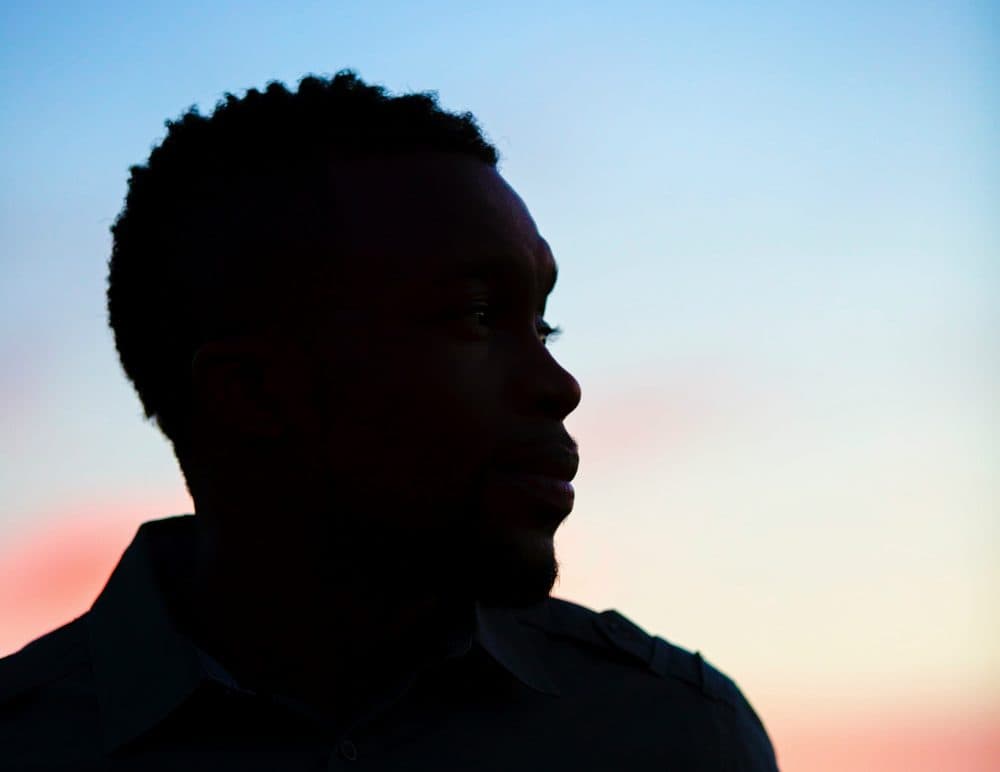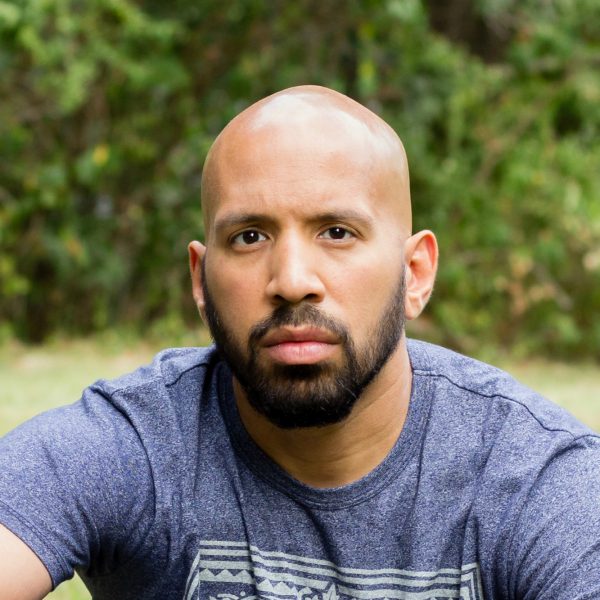Advertisement
COMMENTARY
The Unbearable Whiteness Of Being

I used to make fun of my Pop’s Afro. Then, as now, he took meticulous care of it. I remember with such clarity the way he used to trim it in the mirror of our basement bathroom. The way he leaned over the sink to wash it, neck craned under the faucet to keep the shampoo from running in his eyes. The way he styled and shaped it to geometric perfection. That Afro was the epitome of cool.
Except to me. His natural, his turtlenecks under his leather jackets, his ankle-high leather boots, made him a walking anachronism. An outdated Richard Roundtree; Shaft in the wrong time.
I envied that hair, though I didn’t know it at the time. I still do. Not only for myself but also for my sons. I am a biracial black man, but I was not blessed with my father’s good hair. His loose curls plus my mother’s arrow-straight locks left me with a shock more Prince than Angela Davis; skin more Dwayne Johnson than Wesley Snipes. A child of the 70s, my parents let my hair grow long and wavy and so I heard that question, as early as grade school; the question that dogged me through high school, followed me to college, nipped at my heels through adulthood, until I shaved my thinning hair:
“What are you, exactly?”
Last week, I read Ijeoma Oluo’s brilliant profile of Rachel Dolezal. Her beautiful and surgical dissection of the Woman Who Would Be Black cuts right to the beating heart of the white privilege which grants Dolezal the “racial fluidity” that she so adamantly denies is a one-way street; that lets her believe that, unlike me, her racial identity is always assumed by others to be black, simply because she wills it to be so. It is an interview of power and intensity with a woman who dares assume blackness with none of the history of (and present day) trauma and oppression that that entails.
[My father's] loose curls plus my mother’s arrow-straight locks left me with a shock more Prince than Angela Davis; skin more Dwayne Johnson than Wesley Snipes.
At its conclusion, I was that gif of Drake at a basketball game, compelled to stand and applaud, grateful for Oluo’s thoughtful exposure of Dolezal’s “transracial” identity. Over the next few days, though, over multiple readings, I found it provoking some unexpected feelings as well.
A portion of Oluo’s opening paragraph echoes. Loudly. “I’m sitting across from Rachel Dolezal and she looks … white. Not a little white, not racially ambiguous. Dolezal looks really, really white.”
My wife is white, and so my sons have inherited the same dilution of skin and hair I had from my parents. My youngest is blonde. He looks white. Not racially ambiguous. Really, really white.
I’m raising my sons, as my father raised me, to be proud of their blackness. My wife and I stock their shelves with children’s books of diversity. I’m more sensitive than ever to the racial stereotypes present in the cartoons with which they’ve become enamored. But when it comes time for them to attend school, will my sons be confronted with that same question: What are you? And when they answer, will they be doubted in the ways Dolezal is, even though they’re not lying?
Advertisement
As a child, more than anything you want to belong, and so the constant disbelief and invalidation of your identity wears you down, to the point where ... you almost begin to question it yourself.
That kind of doubt and disbelief can run deep in a child. I know, because I experienced that disbelief, no matter how loudly I protested. I didn’t dress right, I didn’t talk right, no way was I “mixed” with black. As a child, more than anything you want to belong, and so the constant disbelief and invalidation of your identity wears you down, to the point where you don’t want to argue anymore, where you almost begin to question it yourself. It saps you of the courage to stand up to racism when it’s spoken in your presence because you don’t want to be alone anymore. I won’t have that for my sons.
Those who cling to the fallacy of post-racial America are sure to tell me that times are different. What your children are, are human beings. Race is a social construct. It doesn’t matter what color they are, as long as they are good people.
But it matters what color they are. As Oluo so eloquently states: “The degree to which you are excluded from white privilege is largely dependent on the degree to which your appearance deviates from whiteness.” In many ways, my sons will benefit from their lighter skin and hair. It may spare them pain. But I also hate that this divergence from their blackness brings me some sense of relief.
Pops still wears that Afro. A little grayer. A little less full. No less proud. Just a few weeks ago, during a visit with his grandsons, my oldest asked to touch his hair. It was a moment of pure innocence, but it carried a weight that rung of that very privilege that I simultaneously dread and hope for. Even though it came from a place of a child’s curiosity that made me smile, on the inside, I cringed. While my father laughed it off and acquiesced, I know he felt it, too, along with something else.
We still have work to do.
